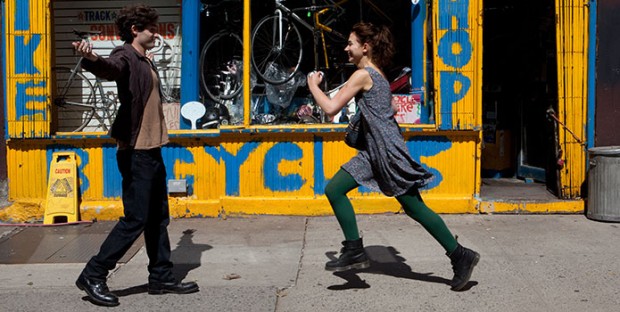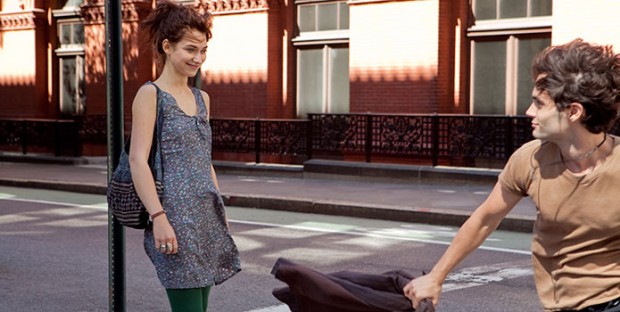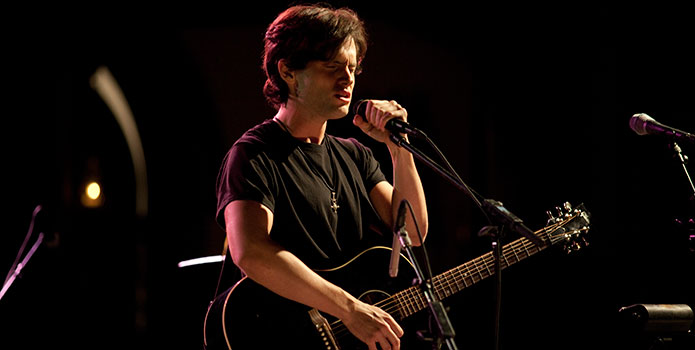Dan Algrant’s Greetings from Tim Buckley simultaneously tracks the artistic development of musician father and son Tim and Jeff Buckley at around the same times in their lives, as both died too young on the edge of perhaps greater success. Penn Badgley plays a young Jeff Buckley, called to a church in Brooklyn in 1991 for a tribute concert, which becomes a spiritual journey into his own development, including a return to upstate New York where his father spent his childhood with concert manager Allie (Imogen Poots). Ben Rosenfield plays Tim Buckley and his story parallels his son, whom he was estranged from, also heading to New York City to play smoky basement bars and discuss philosophy, his travels including his return to the West Coast.
The film’s style follow the music of both Buckleys, folksy and relaxed – however its low-budget shows as often New York City streets are shot in shallow focus to hide the dressing required to make the film look like 1991. I forgive the film these shortcomings due to the excellent performances, including Badgley’s closing number, which is a showstopper.

The film traces a period of an artist’s career I often find to be their most interesting and many times their best: the early days. Greetings from Tim Buckley, sounding an awful lot like Obama’s Dreams From My Father (perhaps Dinesh D’Souza can provide a detailed cultural analysis again), is a rather beautiful portrait of the formation of an artistic sensibility, not the easiest thing to capture on film. And, to be fair, there are times when it falls on some clichés. It is a living, breathing portrait, although perhaps too neatly wound up, a journey, functioning a bit like a road movie. Although, for what these characters will become, their ultimate destinies will sadly overshadow the journey we take with them.

Where the film falls a bit short is in its narrative structure and screenplay, which does not allow for the spontaneity of documentary: if it could break free, transcend its screenplay like a great song lyric, this might have been one of the highlights of TIFF. There is a lot to admire on screen, including the beautiful cinematography, but within the context of its normal conversations and beats, it feels as if we’ve been there before. If only it considered the approach of something like Once, the risk would have either been a masterpiece or an interesting mess.


